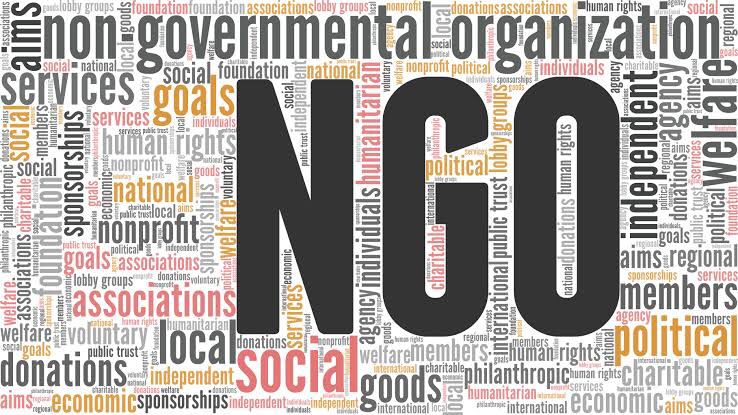Functions of NGOs:
- Social Welfare and Development: NGOs often focus on addressing social issues such as poverty, healthcare, education, and community development.
- Environmental Conservation: NGOs play a pivotal role in environmental sustainability. They work on initiatives ranging from wildlife conservation to climate change mitigation, aiming to create a more sustainable and eco-friendly world.
3-Human Rights and Advocacy:
Many NGOs are dedicated to promoting and protecting human rights. They engage in advocacy efforts, raising awareness about social injustices and working towards policy changes to safeguard fundamental rights.
4-Disaster Relief and Emergency Response:
During natural disasters or humanitarian crises NGOs are often at the forefront of providing relief. They mobilize resources offer aid and contribute to rebuilding efforts in affected areas.
5-Healthcare Initiatives:
NGOs may focus on healthcare services, providing medical assistance, awareness programs, and support for communities facing health challenges, including epidemics or pandemics.
Types of NGOs:
1-Charitable Organizations:
These NGOs primarily focus on philanthropy, raising funds for various causes such as education, healthcare, and poverty alleviation other activities serving the public interest or common good.
2-Environmental NGOs:
Dedicated to environmental conservation, these NGOs work on projects related to biodiversity, climate change, and sustainable development.
What Is the Difference Between an NGO and an NPO?
NGO stands for non-governmental organization. NPO stands for non-profit organization. A non-profit organization Operates without the primary goal of generating profits for its members or stakeholders.The NPO Registered under Section 8 of the Companies Act.A non-governmental organization Operates independently of government control and intervention.
What is NGO Work ?
NGOs, as the name suggests, are organizations independent of government control. Their primary objective is to address social, environmental, or humanitarian issues. NGO work encompasses a variety of activities, including but not limited.
- Humanitarian Aid and Relief: NGOs often respond swiftly to emergencies, providing immediate relief such as food, shelter, and medical assistance in the aftermath of natural disasters or conflicts.
- Education and Skill Development: NGOs are instrumental in promoting education and skill development. They establish schools, provide scholarships, and create programs to enhance vocational skills, empowering communities for a better future.
- Women and Child Welfare: NGOs contribute significantly to women and child welfare. Their programs may focus on maternal health, gender equality, and protection of children’s rights.
- Poverty Alleviation: NGOs develop projects and initiatives to address the root causes of poverty, aiming to create sustainable solutions that uplift communities economically.
- Human Rights Advocacy: NGOs champion human rights causes, working to eliminate discrimination, injustice, and violence. They often collaborate with governments and international bodies to bring about legislative changes.
- Healthcare Initiatives: Many NGOs focus on improving healthcare access and outcomes. They may run clinics, conduct awareness campaigns, or collaborate with governments to address public health challenges.
- Environmental Conservation: NGOs actively engage in environmental initiatives, advocating for sustainable practices, conservation of natural resources, and raising awareness about the importance of environmental protection.
Conclusion:
NGOs are diverse entities with a shared commitment to creating positive change. Whether addressing societal challenges, advocating for human rights, or promoting environmental sustainability, NGOs play a crucial role in fostering a better world. As global citizens, understanding and supporting the work of NGOs contribute to the collective efforts toward a more equitable and sustainable future.







